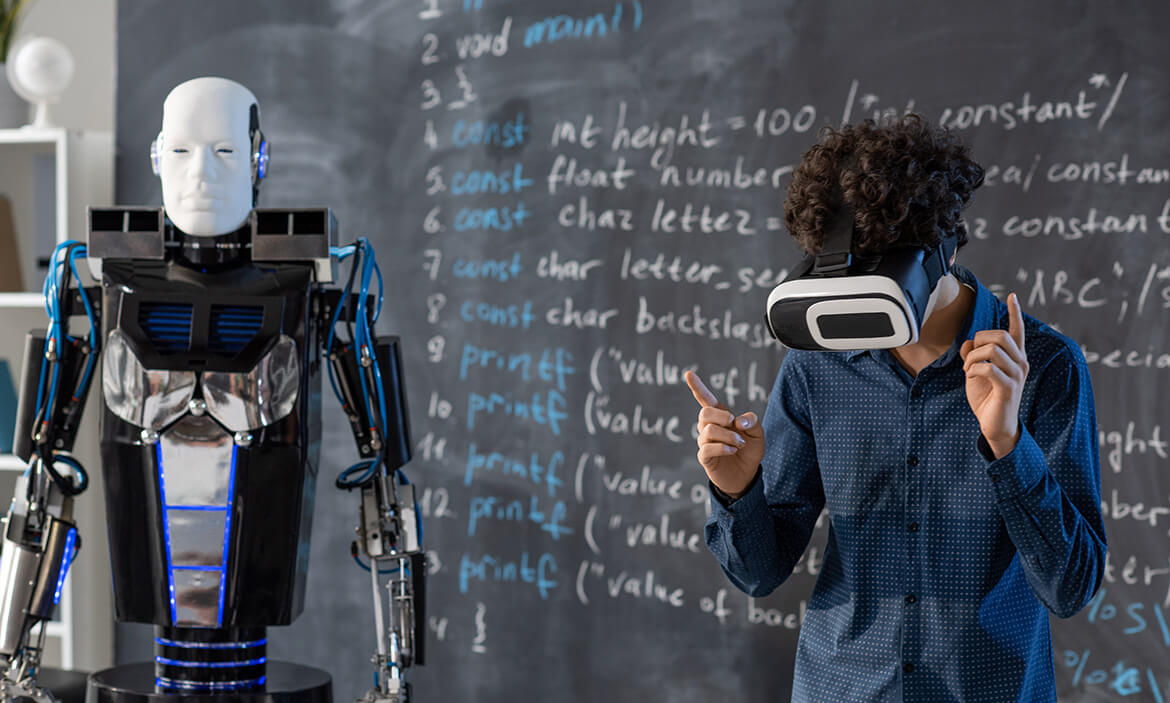Clinical Trial Translation Services
Achieve Global Reach, Safeguard Patient Safety, and Accelerate Regulatory Approvals
Leverage Sesen’s specialized clinical translation solutions in over 150 languages to drive accurate data collection, informed decision-making, and seamless global collaboration.
Ensuring Accuracy, Compliance, and Patient Safety
Global clinical research hinges on the integrity of both the data collected and the communication pathways established among sponsors, contract research organizations (CROs), investigators, and patients. High-quality translations are integral to this process, as a single misinterpreted phrase can undermine patient safety, skew trial results, or even invalidate an entire study in the eyes of regulatory authorities. Maintaining the accuracy of clinical documentation—such as protocols, informed consent forms (ICFs), case report forms (CRFs), and labeling—directly impacts patient well-being, data reliability, and timely market approvals.
At Sesen, we recognize the stringent demands placed on clinical trial documentation and the potentially far-reaching consequences of translation errors. Our teams of specialized translators and multilingual medical experts are adept at navigating the complex terminology and regulatory frameworks that govern life sciences. Whether it’s adhering to guidelines set forth by the International Council for Harmonisation (ICH), conforming to Good Clinical Practice (GCP) standards, or ensuring compliance with regional health authorities (e.g., FDA, EMA, MHRA), we employ rigorous processes and industry-best practices to safeguard the accuracy of every translated document.
By leveraging advanced translation technologies—including Translation Memory (TM) systems, terminology management tools, and secure collaboration platforms—we ensure consistent, high-quality output across all stages of a clinical trial. Coupled with our deep subject matter expertise and unwavering commitment to quality assurance, Sesen’s approach minimizes the risk of misinterpretation and regulatory setbacks. From patient enrollment materials to final regulatory submissions, our mission is to protect patient safety, preserve data integrity, and expedite global study timelines through translations that meet the highest standards of precision and professionalism.
Comprehensive Language Solutions for Every Stage of Your Trial
At Sesen, we combine linguistic accuracy, technical expertise, and regulatory insight to deliver consistent, compliant translations for every phase of your trial.
Protocol Translations
Sesen delivers precise, consistent translations of clinical protocols, ensuring trial staff across global sites follow uniform guidelines and maintain Good Clinical Practice (GCP).
Investigator’s Brochure Translations
We localize the investigational product’s key details, enabling researchers worldwide to fully understand scientific objectives, safety data, and dosage recommendations.
Informed Consent Forms (ICFs)
Our language team translates ICFs to reflect cultural sensitivities and local regulations, so patients clearly grasp study requirements, risks, and benefits.
Patient-Reported Outcomes (PROs) & Questionnaires
By performing rigorous linguistic validation and back translation, we preserve data accuracy across languages, supporting reliable measurement of patient responses.
Regulatory Submission Documents
From FDA to EMA submissions, our specialized translators ensure technical and legal precision, minimizing the risk of review delays or compliance issues.
Labeling & Packaging Inserts
We help life sciences companies safeguard patient safety by accurately translating product labels and instructions, adhering to strict regulatory standards in each target region.
Training Materials
Sesen translates educational resources—such as manuals and e-learning modules—to meet the language and cultural needs of global trial teams.
Patient Recruitment Materials
We localize brochures, flyers, and digital campaigns to resonate with diverse populations, boosting enrollment and retention throughout the trial.
Sesen’s Methodology for World-Class Clinical Translations
Specialized Medical Linguists
At Sesen, every translation project is handled by expert linguists with a proven background in life sciences. Our team includes professional native translators who understand the nuances of clinical research protocols and regulatory language in addition to having extensive experience in medical and pharmaceutical terminology. This specialized knowledge ensures that complex concepts and critical data points remain linguistically accurate and technically precise in every target market.
Stringent Quality Assurance (QA) Processes
To maintain unwavering standards of precision, we adhere to ISO-certified workflows (ISO 9001, ISO 13485, ISO 17100) that govern each step of our translation process. After an initial translation, documents undergo independent proofreading and editing by a second expert. In highly sensitive or legally binding materials, we incorporate back translation to verify the original meaning. These rigorous checks minimize the risk of errors and guarantee the highest quality output for clinical trials and related documentation.
Technology-Driven Efficiency
Sesen leverages advanced translation technology, including Translation Memory (TM) and terminology management on our intelligent, secure cloud-native translation management platform, to streamline our processes and ensure consistent, high-quality translations across all your project documents. We also develop custom glossaries to capture client-specific product names, branding, and technical terms, which further improves both accuracy and turnaround times. By combining cutting-edge technology with human expertise, we deliver seamless multilingual support for global clinical trials.
Regulatory Compliance & Confidentiality
Recognizing the sensitivity of clinical trial data, we implement robust security measures and sign NDAs to protect client information at all stages of the project. Our platforms and workflows comply with international data protection regulations, such as GDPR and HIPAA, ensuring that patient information and proprietary study data remain fully secure. With Sesen as your partner, you can be confident that your clinical trial documentation is translated accurately, efficiently, and with the utmost confidentiality.
Linguistic Validation & Cultural Adaptation
High-quality translations in clinical trials go beyond literal word conversion from one language to another. Linguistic validation is crucial for patient questionnaires, Patient-Reported Outcomes (PROs), and other instruments that measure subjective health experiences. This multi-step process typically involves forward-back translation, consensus review, and cognitive debriefing sessions with representative populations. By following industry standards—including guidelines from organizations like the International Society for Pharmacoeconomics and Outcomes Research (ISPOR)—Sesen ensures these critical documents retain both conceptual and contextual equivalence across languages.
Equally important is cultural adaptation, where linguistic choices account for local customs, beliefs, and health literacy levels. Patient-facing materials must be easily understood, culturally respectful, and relevant to diverse demographics. This includes selecting appropriate terminology, adjusting date and measurement formats, and considering any potential sensitivities around medical topics. By adapting content in ways that resonate with local audiences, Sesen helps sponsors avoid misinterpretation that could lead to inaccurate data or compromised patient safety.
Together, linguistic validation and cultural adaptation contribute to higher patient engagement and improved retention rates in global studies. Participants who fully comprehend the study requirements and procedures are more likely to adhere to trial protocols and remain committed throughout the study. Ultimately, these best practices safeguard the integrity of clinical data and foster a positive patient experience—two key elements for the success of any international clinical trial.
Partnering with Pharma, Biotech, and CROs Worldwide
Pharmaceutical Companies
Sesen delivers multilingual support for every phase of the drug development process—from preclinical studies to post-marketing surveillance. Our experienced translators and medical experts ensure regulatory documents, informed consent forms, clinical trial protocols, and labeling materials meet the highest quality and compliance standards. By combining in-depth industry knowledge with advanced translation technologies, we help pharmaceutical sponsors streamline their global operations and bring life-saving medications to market faster.
Biotechnology Firms
Biotech innovations, such as gene therapies and advanced biologics, demand a high level of technical sophistication. Sesen’s specialized linguists are adept at translating complex scientific data, research findings, and product documentation with utmost precision. Whether it’s for patent filings, investor presentations, or regulatory submissions, our specialized team safeguards the scientific integrity of your content while adapting materials for diverse global audiences.
Contract Research Organizations (CROs)
As CROs often manage clinical trials on behalf of multiple sponsors, consistent, reliable translations are critical to maintaining operational excellence. Sesen provides end-to-end language solutions—covering study start-up, patient recruitment, site training, and final reporting. By leveraging ISO-certified workflows and secure translation management platforms, we ensure that your documentation remains confidential, accurate, and on schedule, no matter how many languages or trial sites are involved.
Medical Device Manufacturers
From device manuals and Instructions for Use (IFUs) to labeling and regulatory documentation, medical device translations must be both technically accurate and accessible to end users. Sesen’s teams are well-versed in international regulations, including EU MDR and FDA requirements, ensuring product materials meet local compliance standards. Whether you’re distributing wearables, implants, or diagnostic equipment, our culturally adapted translations help maximize user safety, product credibility, and global market success.
Proven Track Record in Clinical Trial Translations
Below are anonymized examples of successful clinical translation projects we completed in partnership with a leading global CRO (referred to here as “the CRO”) for major pharmaceutical and biotech clients. These cases highlight how Sesen’s expertise helped improve enrollment, enhance regulatory compliance, and expedite study timelines.
Case Study 1: Multi-Country Phase III Oncology Trial
- Challenge:
The CRO was managing a late-stage oncology trial involving patient enrollment across more than 15 countries in Europe and Asia. They required rapid, high-quality translations of study protocols, informed consent forms, and patient recruitment materials, all under tight regulatory timelines. - Sesen’s Approach:
- Deployed a team of specialized medical translators with oncology backgrounds.
- Utilized ISO-certified processes (ISO 17100) to ensure accuracy and consistency.
- Conducted expedited linguistic validation for patient-facing materials to maintain clarity and cultural relevance.
- Outcome:
Thanks to our streamlined workflows and use of secure translation management technology, the CRO completed translations ahead of schedule, expediting regulatory submissions. Patient enrollment targets were met earlier than projected, and sponsors reported improved patient comprehension and compliance. - Client Feedback:
“Sesen’s rapid turnaround and subject matter expertise were critical in meeting our enrollment targets. Their attention to detail ensured our oncology trial materials were both compliant and patient-friendly.”
– Associate Director, Clinical Operations
Case Study 2: Rare Disease Study with Extensive PROs
- Challenge:
The CRO needed specialized translations for a rare disease clinical trial’s Patient-Reported Outcome (PRO) instruments, which included highly technical terms and culturally sensitive questions. Ensuring consistent terminology and patient engagement across 10 languages was essential for collecting reliable data. - Sesen’s Approach:
- Conducted a thorough glossary creation process in collaboration with the CRO and sponsor, capturing disease-specific terminology.
- Performed forward-back translation and cognitive debriefing sessions to validate the PRO instruments, following best practices from ISPOR.
- Provided ongoing support to incorporate mid-study updates to the questionnaires without disrupting the overall study timeline.
- Outcome:
The data collected through these validated PRO instruments remained consistent across all participating regions, helping the sponsor demonstrate clear efficacy outcomes to regulatory bodies. By minimizing errors and enhancing participant understanding, the trial maintained strong patient engagement, ultimately expediting the approval process. - Client Feedback:
“Our team appreciated Sesen’s rigorous validation process. The translations were highly accurate, and the seamless integration of changes during the trial made our job much easier.”
– Global Project Manager, Rare Disease Program
Clinical Trial Translations FAQ
Do you provide certified translations for regulatory submissions?
Yes. At Sesen, we offer certified and sworn translations, depending on regional requirements, to ensure full compliance with health authorities such as the FDA, EMA, and other international regulatory bodies. Our certification process includes thorough quality checks and official endorsements, providing an additional layer of credibility and assurance for your submissions.
What are your quality assurance standards?
We adhere to ISO-certified workflows (including ISO 9001, ISO 13485, and ISO 17100) that govern each phase of our translation and review process. Every project undergoes independent proofreading and editing by subject matter experts, ensuring the highest level of precision and consistency for clinical documentation.
Can you handle multiple languages simultaneously?
Absolutely. Sesen’s extensive global network of professional linguists, combined with our cloud-based translation management platform, allows us to manage large-scale, multi-language projects in parallel. This capability accelerates turnaround times and maintains consistency across all languages.
How do you ensure confidentiality and data security?
We implement stringent security measures at every stage of our workflow. Our translators and project managers are bound by Non-Disclosure Agreements (NDAs), and all data is stored on secure, encrypted servers that comply with GDPR, HIPAA, and other data protection regulations. This approach safeguards patient privacy, proprietary trial data, and intellectual property.
How do you handle urgent or last-minute requests?
We understand that clinical trial timelines can be unpredictable. Our flexible project management teams and streamlined workflows allow us to accommodate rush requests without compromising quality. Depending on the scope, we can assign additional resources or work in extended shifts to meet your tight deadlines.
Are you able to handle specialized medical terminology for various therapy areas?
Yes. We work with linguists who possess in-depth knowledge of specific therapeutic fields—from oncology and immunology to rare diseases and medical devices. Their expertise ensures correct usage of complex terminology, context-appropriate language, and compliance with relevant industry standards.
What if mid-study amendments or updates are required?
Clinical trials often evolve, requiring changes to protocols, patient materials, or regulatory documents. Sesen’s agile translation process and version-control systems allow us to efficiently incorporate these updates. We ensure consistency and accuracy by referencing previously approved terminology, glossaries, and style guides throughout the project.






